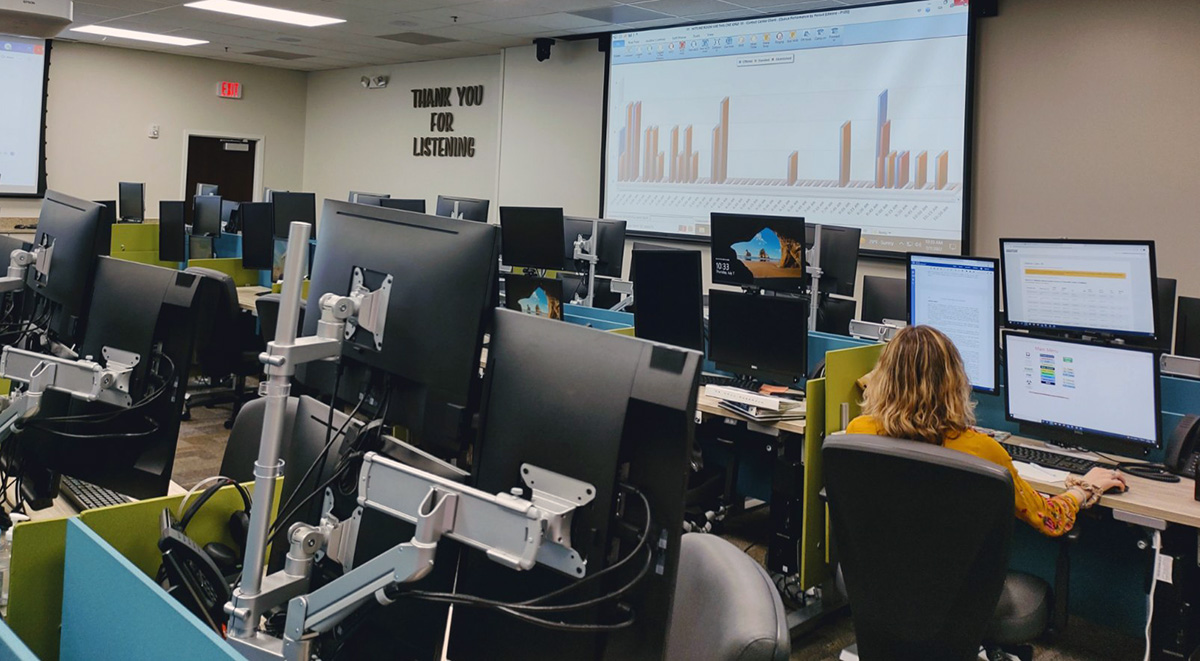Investing in South Carolina’s Mental Health

Aug. 5, 2022
More than 700,000 South Carolinians are living with mental health conditions. In 2019, more than 800 people in the state died by suicide. Nearly 190,000 adults in South Carolina struggled with thoughts of suicide that same year.
The National Suicide Prevention Lifeline (NSPL) launched the 988 service this year to help those struggling with thoughts of self-harm. An unfunded federal mandate required NSPL to launch the 988 service as a 24/7 universal dialing code in July. Mental Health America of Greenville County (MHAGC) is the only call center in South Carolina handling these lifeline calls.
The BlueCross BlueShield of South Carolina Foundation continues its support of our state’s mental health through a grant to MHAGC.
“The Foundation’s commitment helped the 988 lifeline hit the ground running when it launched in July,” says Erika Kirby, executive director of the Foundation. The goal is to create a system that can be sustained and can evolve as demand grows.”
The South Carolina lifeline has seen a 261 percent increase in calls answered by MHAGC since June 2020. Volunteers with MHAGC stopped nearly 200 active suicide attempts between June 2020 and June 2021. Funding support from the Foundation will equip MHAGC with the data and technology to connect call records, increase in-state answer rates and decrease wait times.
The 988 service is meant to provide the most effective support to those experiencing mental health crises. The lifeline diverts mental health-related emergency calls from the 911 service. The goal is to reduce avoidable emergency department or hospital admissions for people in crisis. The 988 system is also designed to help avoid traumatic encounters with the criminal justice system. Nearly all NSPL calls are resolved without involving emergency services.
“The 988 service operates very similar to the NSPL, but the addition of the mental health-focused emergency response is key to providing the most appropriate response to callers in crisis,” Kirby says. “The support provided by the Foundation lays the groundwork for this critical service and ensures South Carolinians in crisis can receive the help they need.”
 Investing in Adolescent Mental Health
Investing in Adolescent Mental Health
Young people in South Carolina face a grim truth. Suicide rates among those ages 10 to 24 continue to rise according to the South Carolina Department of Health and Environmental Control. Data from the South Carolina Department of Mental Health (SCDMH) shows the increase in suicide rates is most significant among children ages 10 to 14. The BlueCross BlueShield of South Carolina Foundation hopes to change that.
Read More What To Know About Social Media and Mental Health
What To Know About Social Media and Mental Health
Americans spend hours every day on social media apps. These apps can impact users’ mental health. Two BlueCross experts breakdown how social media can affect people and steps everyone can take to limit these negative outcomes.
Read More Focus on Infant Mental Health
Focus on Infant Mental Health
Hearing the term “infant mental health” sounds unfamiliar to most parents. However, it’s a very real thing. BlueCross recently spoke with Kerrie Schnake, director of the South Carolina Program for Infant/Toddler Care at the University of South Carolina and president of the South Carolina Association for Infant Mental Health, about the importance of supporting young children developing healthy behaviors.
Read More
















